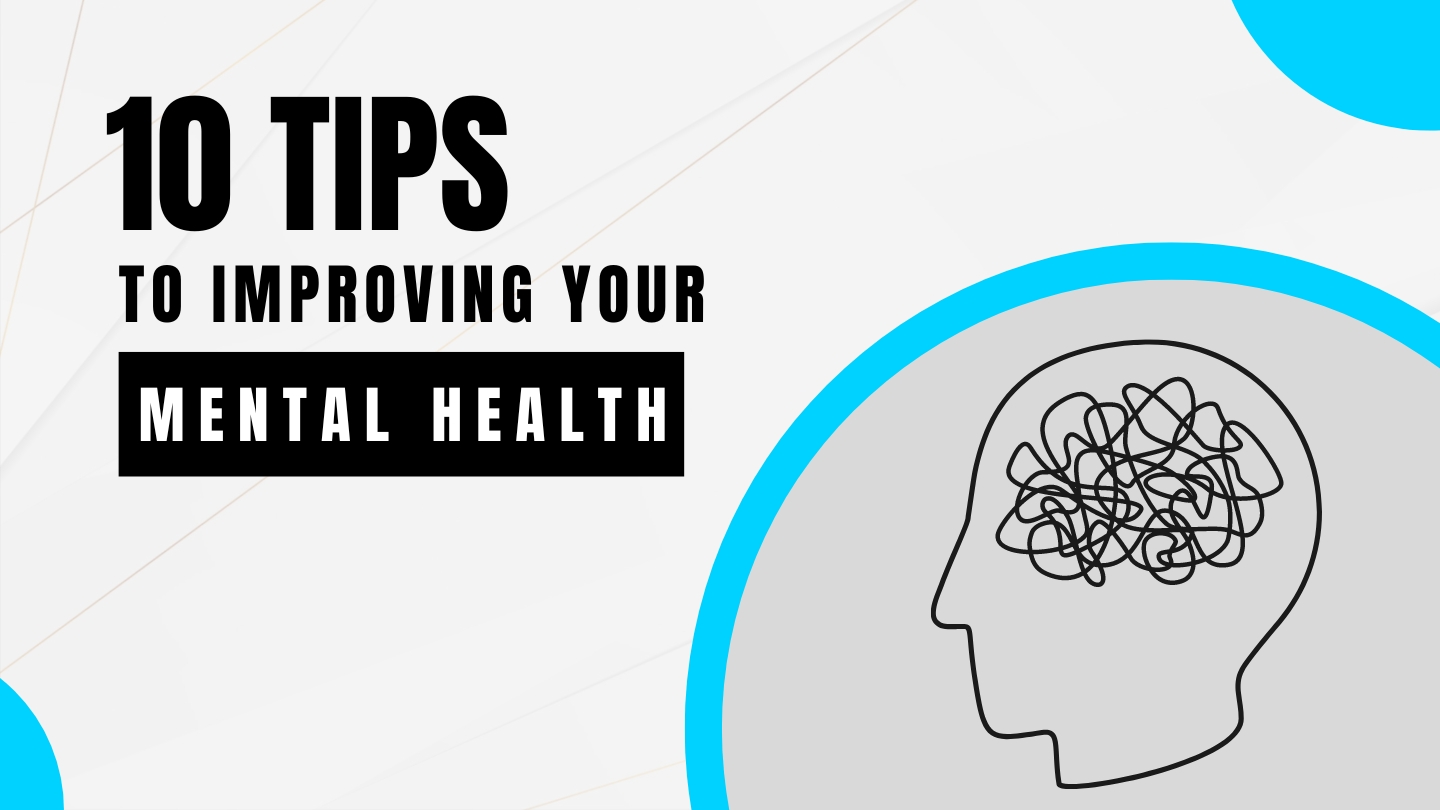10 Tips to Improving Your Mental Health
This post was last updated on July 7th, 2023

Mental well-being is something that is at the top of many people’s minds in our fast-paced society. Being in-tuned with yourself and where you’re at mentally is a pivotal part of living a healthy, fulfilling life. Long are the days when being well within yourself is based solely on eating well and exercising – now, it’s equally important to take care of the self within your own mind.
Here are ten tips to improve your mental health in your day-to-day life.
Contents
Toggle1. Value yourself
With the introduction of social media, it’s easy to compare yourself to others and feel that your own self-worth isn’t on-par with your peers. Negative self-talk can be detrimental to your mental well-being and doesn’t serve to improve your standing in life. Treating yourself with kindness and respect, while avoiding self-criticism can help you to have a more positive mindset. Make time for your hobbies and favorite projects, or even consider broadening your horizons. Try doing a daily crossword puzzle, planting a garden, taking a dance lesson, learning to play an instrument, or trying to learn a new language.
2. Take care of your body
Taking care of yourself physically is scientifically proven to improve your mental health. Be sure to:
3. Surround yourself with good people
People who have strong family or social connections are generally healthier and happier than those who don’t have a support network. Try to make time to see supportive family members and friends, or seek out activities where you can meet new people, such as clubs, classes, or support groups.
4. Give yourself
Don’t be afraid to give back and volunteer your time and energy to help somebody else. You’ll have the chance to feel good about doing something tangible to help someone else in need – and it’s a great way to meet new people.
5. Learn to cope with stress
Stress is unfortunately a part of life. You have to practice good coping skills. Try some one-minute coping stress strategies, exercise, take a nature walk, play with your pet, or try journaling your feelings to help ease stress. Don’t forget to remember to smile and enjoy the humorous things in life. Laughter has the ability to boost your mood, ease your emotional stress, relax the body, and ease the mind.
6. Quiet your mind:
Try meditating, mindfulness, and even prayer. Relaxation exercises and prayer have the ability to improve your mental well-being and your outlook on life. In fact, there is research that shows medication can help you feel calm and enhances the impact of therapy. To get connected to the deeper self, consider some of the resources below:
The Mindful Minute with Meryl Arnett has been a meditation teacher since 2010, focusing on how mindfulness can improve our daily lives. She hosts the podcast weekly and features talk and guided meditations, as well as the occasional mini-meditation.
The John de Ruiter (JdR) podcast hosted by the Edmonton native of the same name features a new-age perspective on spirituality and the self. He provides both in-person and online conversations on a variety of topics from spirituality, relationships, the self, and more. He is also an acclaimed author of books such as Unveiling Reality.
7. Set realistic goals
Decide what you want to achieve, whether it’s academically, professionally, and/or personally, and write down the steps you need to see your goals successfully. Aim high, but be realistic, and don’t overwhelm yourself. You’ll enjoy a great deal of accomplishment and self-worth as you progress towards your goal.
8. Break up the monotony
While routines make us more efficient and increase our feelings of security and safety, a little change of pace can help inspire a tedious schedule. Try a new jogging routine, plan a road trip, take a walk on a new trail, hang up some new pictures, or maybe even just try a new restaurant.
9. Avoid alcohol and other drugs
Keep alcohol and drug use to a minimum. Sometimes, people use alcohol and other drugs to self-medicate, while in reality, these substances can aggravate the symptoms of stress and anxiety.
10. Get help when you need it
Sometimes, the only option you have is to seek help. Seeking help is a great sign of strength – not a sign of weakness. It’s important to remember that treatment is proven effective. People who receive the appropriate care have the opportunity to reduce and recover from mental illness and addiction, allowing them to lead full, rewarding lives.
You may like this
Recommended For You
How to Manage Withdrawal Symptoms of Buprenorphine
Most Inside
Most Inside offers high-quality recommendations and valuable updates to enhance all aspects of your life, providing premium guidance and enriching experiences.




